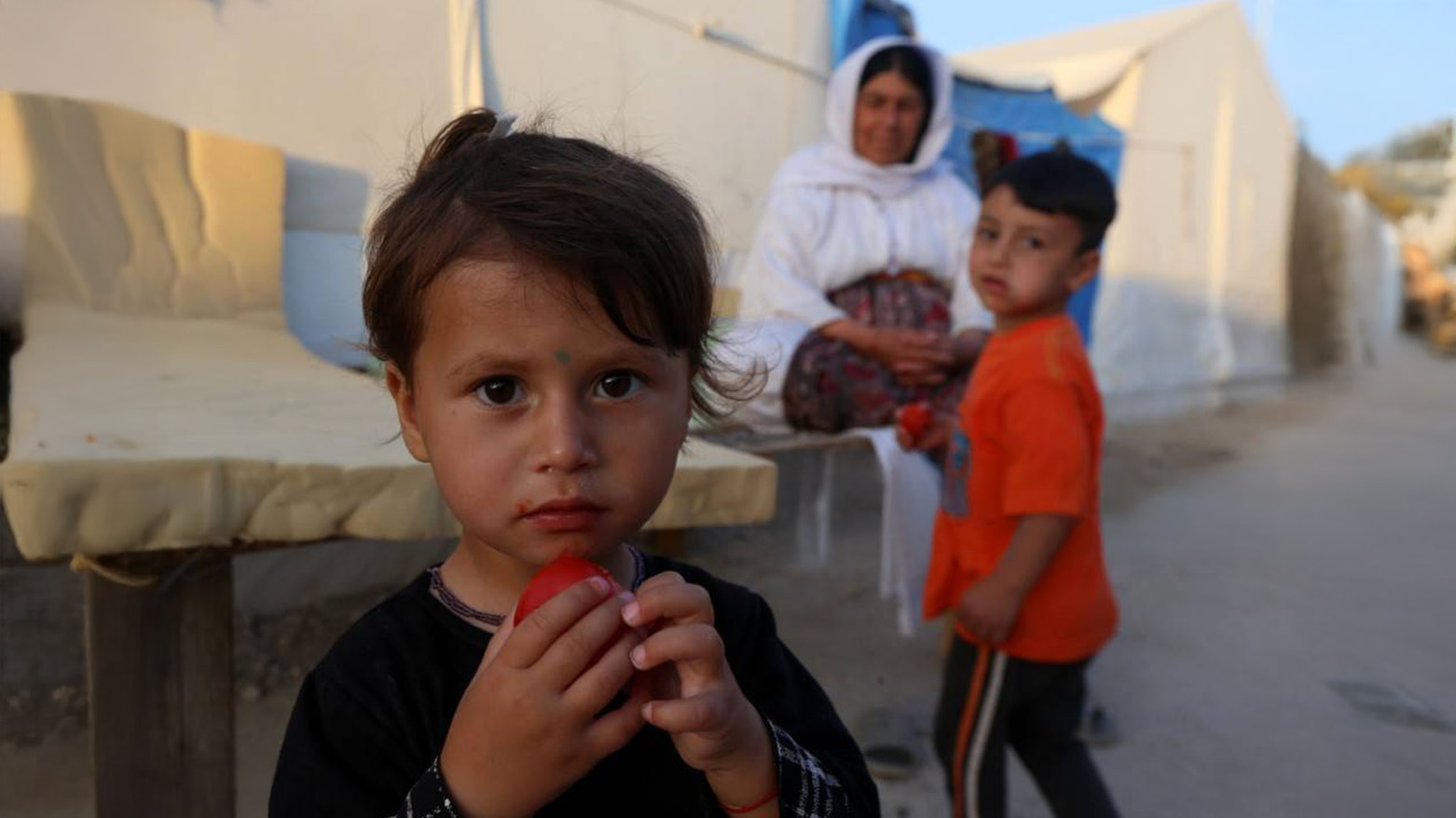Over 300,000 Sinjar IDPs Unable to Return Due to PKK, Illegal Armed Groups
Director-General of the Joint Crisis Coordination Center (JCC) Sirwa Rasul emphasized that while the KRG has welcomed millions of displaced persons and refugees, significant challenges remain in facilitating their safe return.

ERBIL (Kurdistan24) – More than 300,000 displaced individuals from Sinjar remain unable to return to their homes due to the continued presence of the Kurdistan Workers' Party (PKK) and other illegal armed groups (a possible hint to Iran-backed militias), according to the Director-General of the Joint Crisis Coordination Center (JCC), Srwa Rasul.
Speaking at a press conference on Tuesday, Rasul highlighted the ongoing displacement crisis that has burdened the Kurdistan Region for over a decade.
She emphasized that while the Kurdistan Regional Government (KRG) has welcomed millions of displaced persons and refugees, significant challenges remain in facilitating their safe return.
"In 2014, the Kurdistan Regional Government welcomed two million displaced persons and refugees while simultaneously facing an imposed crisis that continues to this day," Rasul stated. "Currently, approximately one million displaced persons and refugees remain in Kurdistan, with many obstacles preventing their return unresolved."
A key issue she addressed is the situation in Sinjar, where 350,000 displaced persons are unable to return due to security threats posed by the PKK and various armed factions operating outside legal frameworks.
"The federal government has not taken effective steps to resolve this issue and ensure the safe return of the displaced persons to their regions," she added.
Displacement from Central and Southern Iraq
Beyond the crisis in Sinjar, Rasul highlighted the difficulties faced by displaced individuals from central and southern Iraq, many of whom remain in the Kurdistan Region without proper legal documentation.
She noted that armed groups have taken control of their homes and lands, preventing them from returning. However, she acknowledged recent positive developments: "A high-level committee has been established between the Kurdistan Region and Baghdad to address these ongoing displacement issues."
Rasul also raised concerns about demographic shifts, particularly in areas affected by Article 140 of the Iraqi Constitution, such as Kirkuk.
"We prefer that displaced persons return to their places of origin to prevent demographic changes. We have already witnessed how Kurds affected by Article 140 have been treated, and the situation in Kirkuk remains concerning," she said.
Many of the displaced persons originally come from these disputed territories, and the federal government must take this issue seriously, she emphasized.
Financial Burden on the Kurdistan Regional Government
Despite its limited resources, the Kurdistan Regional Government continues to shoulder the majority of expenses related to displaced persons. Rasul noted that more than 80 percent of the financial burden falls on the KRG, while the Iraqi government provides inadequate support.
Additionally, international aid agencies have significantly scaled back their assistance, exacerbating the crisis.
"The Kurdistan Regional Government remains committed to assisting displaced persons, but without greater involvement from the federal government and international organizations, long-term solutions remain out of reach," she stated.
With no resolution in sight, Rasul urged the federal government to take more decisive steps to address the security situation in Sinjar and other areas impacted by displacement.
She reiterated the need for national and international efforts to facilitate the safe and voluntary return of displaced persons and alleviate the strain on the Kurdistan Region’s resources.
The displacement crisis in Iraq remains one of the most pressing humanitarian issues in the region, and without meaningful intervention, hundreds of thousands of people will continue to live in uncertainty and hardship.